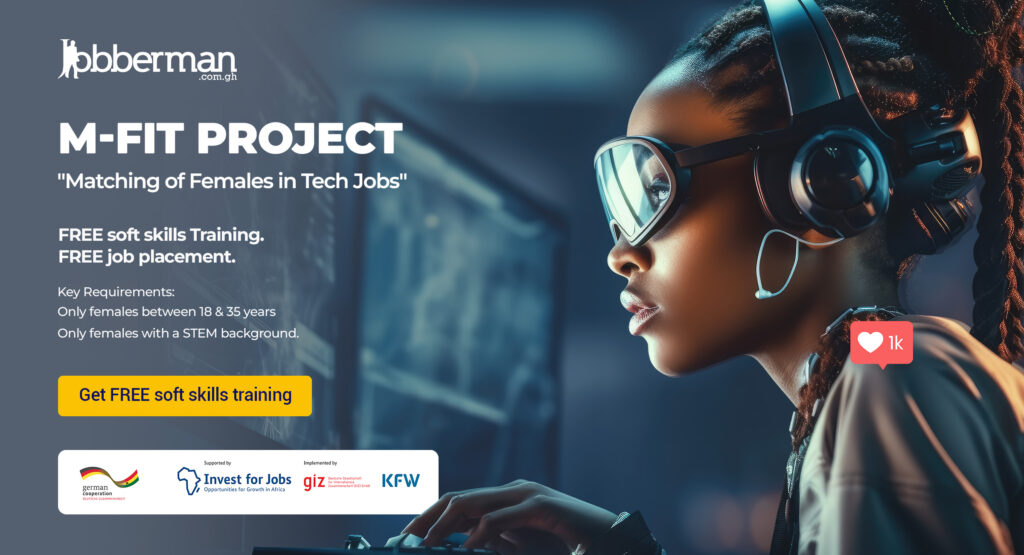In the bustling streets of Ghana, a vibrant tech ecosystem is taking shape, poised to drive Ghana’s future prosperity. Yet, as we embark on this exhilarating digital transformation journey, we must pause to address a glaring concern: the underrepresentation of women in Ghana’s tech landscape.
This challenge is not unique to Ghana; it’s a global issue. However, our progress as a nation hinges on our ability to harness the full potential of every citizen. In the tech sector, where creativity and innovation reign supreme, the absence of diverse perspectives is a missed opportunity and a critical impediment to sustainable growth.
Table of Contents
The Current Landscape: A Gender Disparity
Walk into any tech-related event or organization in Ghana, and you’ll notice the conspicuous gender gap. Women are underrepresented at every level, from the classroom to the boardroom. This inequality is a disservice to our nation, as it limits the breadth of innovative ideas, creativity, and problem-solving capabilities we can tap into.
Why Gender Diversity Matters
Innovation: Diversity fosters innovation. When individuals from different backgrounds come together, they bring unique perspectives that spark creativity and lead to groundbreaking solutions. A lack of gender diversity stifles this innovation potential.
- Market Responsiveness: Tech companies that reflect the diversity of their users are better equipped to understand and respond to customer needs. Ghana’s tech landscape needs this agility to create products and services that resonate with our people.
- Economic Growth: A study by McKinsey & Company found that companies with gender-diverse leadership are 21% more likely to outperform their counterparts. A tech sector actively engaging women can drive economic growth and job creation.
What We Can Do
Education and Awareness: Encourage girls from a young age to pursue STEM (Science, Technology, Engineering, and Mathematics) education. Promote mentorship programs and showcase successful women in tech as role models.
Inclusive Workplaces: Tech companies must foster inclusive environments where women are recruited, retained, and promoted. Implement policies that support work-life balance and equal pay for equal work.
Partnerships and Initiatives: Collaborate with organisations, both public and private, to create programs that specifically target the empowerment of women in tech. Initiatives like scholarships, coding boot camps, and networking events can make a significant difference.
Challenge Stereotypes: Challenge and break down societal stereotypes that discourage women from pursuing tech careers. Emphasise that tech is not a male-exclusive domain.
The Road Ahead
A Tech Ecosystem for All …..
As we envision Ghana’s tech future, let us commit to building an inclusive ecosystem where talent knows no gender and opportunity is equitable. It’s not just about rectifying a gender imbalance but tapping into a vast reservoir of untapped potential.
Empowering women in tech isn’t a choice; Ghana’s tech sector must thrive and lead globally. It’s a commitment to harnessing every ounce of innovation and creativity our nation possesses. Together, we can transform Ghana’s tech landscape into one that truly represents and serves all its people.
The underrepresentation of women in tech in Ghana is not just a problem; it’s an opportunity waiting to be seized.
It’s time to make it happen. Let’s join hands to empower young women in Tech.
FREE Soft Skills Training for Young Women in Tech

Jobberman Ghana is currently collaborating with the Deutsche Gesellschaft für Internationale Zusammenarbeit (GIZ) GmbH on behalf of the German Federal Ministry for Economic Cooperation and Development (BMZ) within the framework of Invest for Jobs to deliver the M-Fit Project.
To bridge the gender gap in the technology sector, this project is designed to empower and equip young women with Science, technology, engineering, and mathematics (STEM) backgrounds with essential soft skills, making them employable in the tech space.
If you are a young woman between the ages of 18 & 35 register for the FREE soft skills training here.
For employers who have available roles for a woman in tech, list your tech role for free here.





